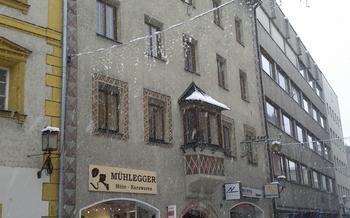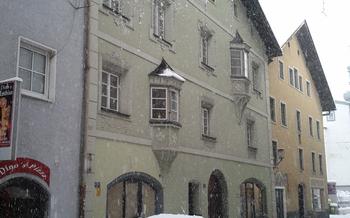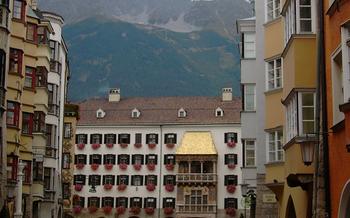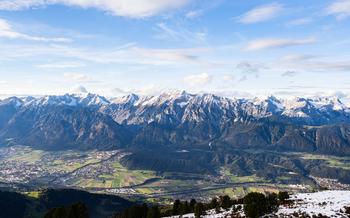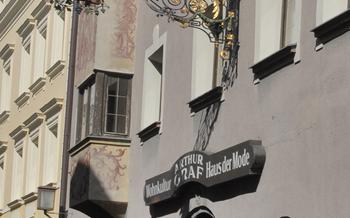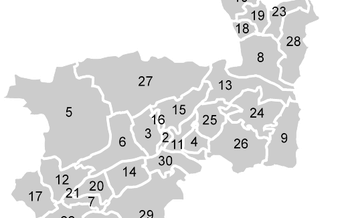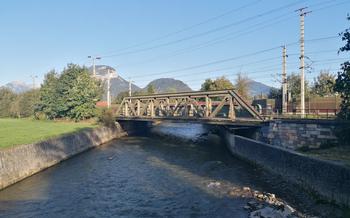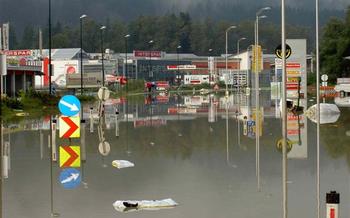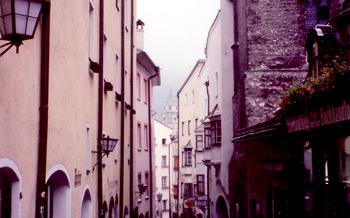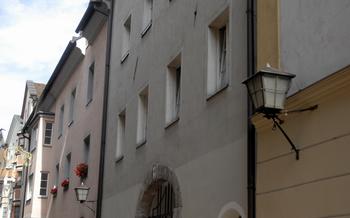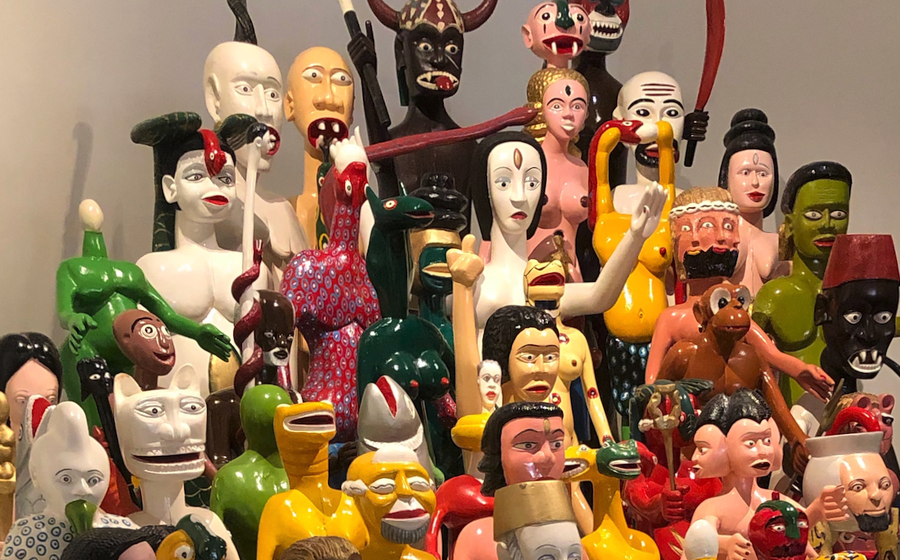
Museum der Völker
- Schwaz: A Cultural Gem in the Heart of Tyrol
- Museum der Völker: A Journey Through Diverse Cultures
- Permanent Exhibitions: Exploring Global Traditions
- Temporary Exhibitions: Showcasing Contemporary Issues
- Guided Tours: Unveiling Hidden Stories
- Educational Programs: Nurturing Cultural Awareness
- Publications: Disseminating Knowledge Beyond the Museum Walls
- Community Engagement: Fostering Cultural Exchange
- Accessibility: Ensuring Inclusivity for All
- Museum Shop: Unique Souvenirs and Gifts
- Café-Restaurant: A Culinary Journey
- Events and Activities: Celebrating Cultural Diversity
- Planning Your Visit: Essential Information
- Insider Tip: Hidden Gems of the Museum
Schwaz: A Cultural Gem in the Heart of Tyrol
Nestled amid the breathtaking landscapes of the Tyrolean Alps, the charming town of Schwaz holds a special place in the cultural tapestry of Austria. Once a thriving mining hub, Schwaz has transformed into a vibrant center of arts, history, and tradition. With its well-preserved medieval architecture, narrow cobblestone streets, and stunning mountain vistas, Schwaz offers a unique blend of cultural heritage and natural beauty. Easily accessible by rail or road, Schwaz is an ideal destination for travelers seeking an authentic Tyrolean experience. Among its many attractions, the Museum der Völker stands out as a beacon of cultural exploration and understanding.
Schwaz: A Cultural Gem in the Heart of Tyrol
Schwaz, a town steeped in history and tradition, boasts a rich cultural heritage that dates back to the Middle Ages. Once a prosperous mining center, Schwaz played a pivotal role in the Tyrolean economy. The town's silver mines, discovered in the 15th century, brought immense wealth and prosperity, transforming Schwaz into a vibrant hub of trade and commerce. The legacy of this mining heritage is still evident in the town's architecture, with many historic buildings showcasing intricate facades and ornate decorations.
Schwaz is conveniently situated in the heart of Tyrol, making it easily accessible by various modes of transportation. Whether traveling by car, train, or bus, visitors can effortlessly reach Schwaz and immerse themselves in its cultural treasures.
Key Attractions in Schwaz
In addition to its captivating history, Schwaz boasts a diverse range of cultural attractions that cater to every traveler's interest. The town is home to several museums, galleries, and historical sites that showcase the region's rich heritage. Visitors can delve into the fascinating world of mining at the Schwaz Silver Mine Museum, marvel at the stunning collection of modern art at the ARTinSchwaz gallery, or embark on a journey through time at the Schwaz Town Museum. The Pfarrkirche St. Martin, a magnificent Gothic church, stands as a testament to the town's religious heritage, while the Freundschaftshaus, a former hospital, now serves as a cultural center hosting various events and exhibitions.
Museum der Völker: A Journey Through Diverse Cultures
The Museum der Völker, located in the heart of Schwaz, embarks visitors on a captivating journey through the diverse cultures of the world. Founded in 1928, the museum houses an impressive collection of artifacts, artworks, and cultural objects from across the globe. Its mission is to promote cultural understanding, foster intercultural dialogue, and preserve the rich heritage of human societies.
The museum's permanent exhibitions showcase a vast array of cultural artifacts from different regions, including traditional clothing, jewelry, masks, musical instruments, and everyday objects. Interactive displays and educational programs bring these exhibits to life, allowing visitors to experience the traditions and customs of various cultures.
Temporary exhibitions at the Museum der Völker address contemporary issues and themes, often in collaboration with international artists and institutions. These exhibitions explore pressing global concerns, such as migration, sustainability, and social justice, encouraging visitors to reflect on the interconnectedness of human societies.
Permanent Exhibitions: Exploring Global Traditions
The permanent exhibitions at the Museum der Völker offer a captivating journey through the diverse cultures of the world. These exhibitions showcase a vast array of cultural artifacts, each telling a unique story about the traditions, beliefs, and practices of different societies. Visitors can explore exhibits on various themes, including traditional clothing, jewelry, masks, musical instruments, and everyday objects. The displays are thoughtfully curated to provide a comprehensive understanding of the cultures they represent. Interactive displays and educational programs further enhance the visitor experience, making the permanent exhibitions an ideal place to learn about global traditions and appreciate the richness of human diversity.
Temporary Exhibitions: Showcasing Contemporary Issues
The Museum der Völker complements its permanent displays with a dynamic program of temporary exhibitions that address pressing contemporary issues and engage visitors in critical dialogue. These exhibitions often collaborate with international artists, scholars, and institutions, bringing diverse perspectives and expertise to the museum's platform.
Temporary exhibitions tackle a wide range of themes, from the impact of climate change on indigenous communities to the evolving nature of cultural identity in the digital age. By exploring these timely topics, the museum fosters a deeper understanding of the challenges and opportunities facing our global society.
The temporary exhibitions are not only thought-provoking but also visually stunning, featuring immersive installations, interactive multimedia displays, and thought-provoking artworks. These exhibitions challenge traditional notions of culture and encourage visitors to reflect on their own biases and assumptions.
Through its temporary exhibitions, the Museum der Völker remains at the forefront of contemporary anthropological discourse, contributing to a more nuanced and inclusive understanding of our interconnected world. These exhibitions offer visitors a unique opportunity to engage with pressing issues, spark meaningful conversations, and gain new perspectives on the human experience.
Guided Tours: Unveiling Hidden Stories
Enrich your visit to the Museum der Völker by embarking on a guided tour, available in multiple languages to accommodate visitors from diverse backgrounds. Led by knowledgeable and passionate guides, these tours provide an in-depth exploration of the museum's exhibits, delving into the history, significance, and cultural contexts of the artifacts.
With their expertise, the guides bring the exhibits to life, revealing hidden stories and offering insights that enhance the visitor experience. They weave together narratives that connect the objects to the people and cultures they represent, creating a deeper understanding of the diverse traditions and perspectives showcased in the museum.
Whether you're a history buff, an art enthusiast, or simply curious about the world's cultures, these guided tours offer a personalized and immersive journey through the museum's vast collections. They're an excellent way to gain a comprehensive understanding of the museum's mission and the significance of its exhibits.
Educational Programs: Nurturing Cultural Awareness
The Museum der Völker goes beyond its exhibits to offer a comprehensive range of educational programs that cater to visitors of all ages. These programs are designed to promote cultural diversity and understanding, providing participants with opportunities to engage with the exhibits in a meaningful way.
Workshops, lectures, and interactive activities are just a few examples of the educational offerings available at the museum. These programs delve deeper into the museum's collections, exploring the cultural significance of artifacts and shedding light on the lives and traditions of people from around the world.
The museum's educational initiatives are not only informative but also inclusive. They aim to foster a sense of empathy and respect for different cultures, encouraging visitors to challenge stereotypes and embrace the richness of human diversity. Whether it's through hands-on activities or thought-provoking discussions, the museum's educational programs provide a platform for cultural exchange and mutual understanding.
Publications: Disseminating Knowledge Beyond the Museum Walls
The Museum der Völker extends its reach beyond its physical walls through a range of publications that disseminate knowledge and research findings to a wider audience. These publications include books, journals, and catalogs that delve into the diverse cultures and traditions showcased in the museum's exhibits.
The museum's publications are meticulously researched and written by experts in the field of anthropology and related disciplines. They offer in-depth analysis, insights, and perspectives on the various cultures represented in the museum's collections. These publications serve as valuable resources for scholars, students, and anyone interested in gaining a deeper understanding of global cultures.
One of the key objectives of the museum's publications is to preserve cultural heritage through documentation. By capturing and disseminating knowledge about diverse cultures, the museum contributes to the preservation of this heritage for future generations. The publications serve as a permanent record of the museum's collections and the research conducted by its scholars.
The distribution of the museum's publications extends beyond the museum's walls, reaching libraries, universities, and research institutions worldwide. This dissemination of knowledge contributes to the broader discourse on anthropology and cultural studies, fostering a global exchange of ideas and perspectives. It also helps to raise awareness about the importance of cultural diversity and understanding among a wider audience.
Community Engagement: Fostering Cultural Exchange
The Museum der Völker extends its reach beyond its walls by actively engaging with the local community and fostering cultural exchange. It serves as a hub for cultural events, workshops, and exhibitions that celebrate the diversity of cultures represented in its collections. Through partnerships with local organizations and initiatives, the museum promotes intercultural dialogue and understanding. These collaborations create opportunities for visitors to connect with different cultures, learn about their traditions, and engage in meaningful conversations. The museum's commitment to community engagement enriches the cultural landscape of Schwaz and promotes a sense of global citizenship among its residents.
Accessibility: Ensuring Inclusivity for All
The Museum der Völker is committed to creating an inclusive environment that welcomes and accommodates visitors of all abilities. To ensure accessibility for all, the museum has implemented various measures to remove barriers and provide a comfortable and enjoyable experience for everyone.
-
Assistive Devices: The museum provides a range of assistive devices to support visitors with disabilities. These include wheelchairs, ramps, and elevators, ensuring that all areas of the museum are accessible.
-
Accessible Tours: Guided tours are available in multiple languages and can be adapted to meet the needs of visitors with disabilities. Trained guides provide detailed descriptions of the exhibits, using clear language and visuals to enhance understanding.
-
Inclusive Environment: The museum is designed to be accessible and welcoming to all visitors. Wide corridors, clear signage, and accessible restrooms create a comfortable environment for everyone to explore the museum's collections.
Museum Shop: Unique Souvenirs and Gifts
The Museum der Völker offers a unique opportunity to take a piece of the museum experience home with you. The museum shop, located within the museum building, features a carefully curated selection of merchandise inspired by the museum's global collections. Visitors can browse and purchase a variety of items, including books, postcards, posters, jewelry, textiles, and other souvenirs.
The museum shop is not just a retail space; it is an extension of the museum's mission to promote cultural understanding and appreciation. The proceeds from the sales directly support the museum's educational and research initiatives, ensuring the continuation of its important work. By purchasing a souvenir from the museum shop, visitors can contribute to the preservation of cultural heritage and the promotion of cultural diversity.
The museum shop is a treasure trove for those who appreciate unique and meaningful gifts. Whether you are looking for a gift for a friend, family member, or yourself, you are sure to find something special at the Museum der Völker. The knowledgeable staff is always on hand to assist visitors in finding the perfect item, whether it be a traditional artifact, a contemporary piece of art, or a children's book on global cultures.
So, don't miss the opportunity to visit the museum shop during your visit to the Museum der Völker. Take home a piece of the museum's diverse collections and support the important work of preserving and promoting cultural heritage.
Café-Restaurant: A Culinary Journey
Within the walls of the museum, visitors can embark on a culinary journey at the on-site café-restaurant. The menu, inspired by the museum's global collections, takes diners on a tastebud adventure across cultures. From traditional Austrian dishes to exotic flavors from far-off lands, the café-restaurant offers a unique dining experience that complements the museum's exploration of cultural diversity.
After a thought-provoking visit to the exhibits, visitors can relax and reflect on their experiences while enjoying a delicious meal or a refreshing beverage. The café-restaurant provides a tranquil oasis within the vibrant museum, allowing visitors to unwind, engage in conversation, and savor the flavors of the world.
Whether indulging in a hearty Tyrolean lunch or sipping on aromatic tea inspired by Asian traditions, the café-restaurant at the Museum der Völker offers a culinary experience that enhances the museum's mission of promoting cultural understanding.
Events and Activities: Celebrating Cultural Diversity
The Museum der Völker is not just a repository of artifacts; it's a vibrant hub for cultural exchange and learning. Throughout the year, the museum hosts a diverse range of events, workshops, and performances that bring different cultures to life. These events provide a unique opportunity to engage with the museum's collections in a dynamic and interactive way.
From traditional music concerts and dance performances to storytelling sessions and hands-on workshops, there's something for everyone at the Museum der Völker. Visitors can learn about the intricate art of Japanese tea ceremony, immerse themselves in the vibrant rhythms of African drumming, or discover the secrets of traditional Tibetan medicine.
These events not only offer a glimpse into the diverse cultures represented in the museum's collections but also foster a sense of community and understanding among visitors. They provide a platform for cultural exchange, where people from different backgrounds can come together to celebrate their shared humanity.
Whether you're a seasoned traveler, a curious learner, or simply someone looking for a unique and enriching experience, the Museum der Völker's events and activities are sure to leave a lasting impression. So make sure to check the museum's calendar before your visit to see what's on offer and plan your itinerary accordingly.
Planning Your Visit: Essential Information
To ensure a fulfilling visit to the Museum der Völker, it's essential to plan ahead and make the most of your time. The museum's operating hours are typically from 10 am to 5 pm on Tuesdays through Sundays, with extended hours on select days. Admission fees vary depending on the type of ticket, with discounts available for students, seniors, and groups. It's advisable to check the museum's website for current information on hours, fees, and special events.
When planning your itinerary, consider the vastness of the museum's collections. Allocate sufficient time to explore the permanent and temporary exhibitions, as well as any special events or workshops that may be taking place during your visit. To make the most of your experience, consider joining a guided tour led by knowledgeable museum educators. These tours provide insights into the history and significance of the exhibits, offering a deeper understanding of the diverse cultures represented.
For further assistance, the museum offers a range of online resources and contact details. Their website provides detailed information on exhibitions, events, and educational programs. Visitors can also contact the museum's information desk via phone or email for personalized assistance in planning their visit. Whether you're an art enthusiast, a history buff, or simply curious about the world's diverse cultures, the Museum der Völker promises an enriching and memorable experience.
Insider Tip: Hidden Gems of the Museum
Beyond the main exhibition halls, the Museum der Völker holds hidden treasures waiting to be discovered. Venture into the museum's basement to find a remarkable collection of ancient artifacts from around the world, carefully preserved and displayed. These lesser-known exhibits offer a glimpse into the lives of past civilizations and provide a deeper understanding of human history.
One hidden gem is a beautifully preserved Egyptian mummy, providing a fascinating look into the ancient Egyptian culture of mummification. In another corner, you'll find a collection of intricate masks from various indigenous cultures, each representing unique traditions and beliefs.
Don't miss the museum's rooftop terrace, which offers panoramic views of Schwaz and the surrounding Tyrolean Alps. It's the perfect spot to relax, reflect on your museum experience, and soak in the beauty of the region.
By exploring these hidden gems, you'll gain a deeper appreciation for the museum's diverse collections and come away with a truly unforgettable experience. So, take your time, wander beyond the main paths, and discover the secrets that the Museum der Völker holds.
